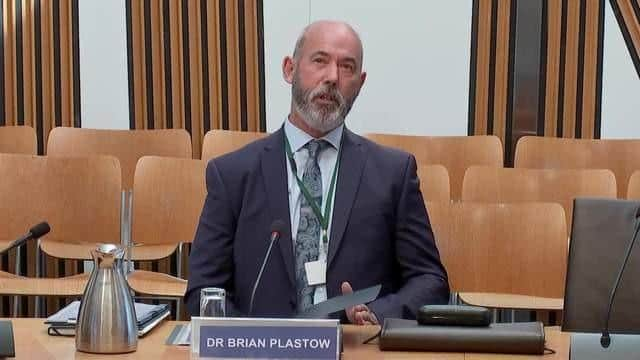SNP ministers want heightened UK-wide role for Scotland’s first policing tsar
and live on Freeview channel 276
SNP ministers want to increase the role of the country’s policing privacy tsar to cover UK-wide crime fighting operations north of the Border.
MSPs have already started scrutinising a pioneering draft ‘code of practice’ on police-held biometric information.
Advertisement
Hide AdAdvertisement
Hide AdIf passed, Scotland would become the first country in the world with a framework on the use of facial recognition, DNA samples, and finger prints in the criminal justice system.The Scottish Government is seeking an order which would widen the remit of biometrics commissioner Dr Brian Plastow.


Under the plan Dr Plastow, a former police superintendent, would monitor the use of human data by the National Crime Agency, British Transport Police and Ministry of Defence Police in Scotland.
He recently told warned MSPs of a “cluttered landscape” with “gaps” in legislation governing the use of biometric data.
His counterpart in England and Wales has a UK wide role in matters of national security which is limited to DNA and fingerprints south of the Border.
Advertisement
Hide AdAdvertisement
Hide AdResponding to questions from Conservative MSP Russell Findlay, Dr Plastow said: “It is a long and drawn-out process.
“But, basically, Scottish Government officials are pursuing a section 104 order under the Scotland Act 1998 to try to extend the functions of the Scottish Biometrics Commissioner to include those three policing organisations in relation to their Scottish operations.
“Obviously, it is in the gift of the Westminster Parliament to approve that, but in preparation for that I included the National Crime Agency, the British Transport Police and the Ministry of Defence Police in the consultation when drafting the code of practice.
Advertisement
Hide AdAdvertisement
Hide Ad“All the chief officers wrote back favourably and indicated that, if that section 104 order is granted, they would be more than happy to come under the auspices of my office and code of practice, and that they would also welcome the opportunity to come on to the professional advisory group.
Mr Findlay told 1919 Magazine: “The importance of the state's access to and storage of people's biometric data does not always seem to be at the forefront of criminal justice considerations, but it is an important subject, and it was interesting to take evidence from the commissioner and ask question about his work.
"What we don't want is a patchwork quilt of regulation or possible gaps in what is covered in the fast-moving biometric landscape. It is proper that the commissioner's remit is understood, and it makes sense that clarity is being sought on the issue of data which is held in Scotland by the UK-wide policing organisations who do so much to keep us all safe.”
Advertisement
Hide AdAdvertisement
Hide AdThe Scottish Government has given an undertaking to include the three agencies when the legislation passed through Holyrood.
A spokesperson said: “The role of biometrics is increasingly important in how crime is investigated, detected and prosecuted in Scotland.
“The Scottish Government is currently in discussion with the UK Government to agree that these bodies should be subject to the oversight of the Commissioner. If a section 104 order is agreed then this order will be laid and debated in the UK Parliament.”